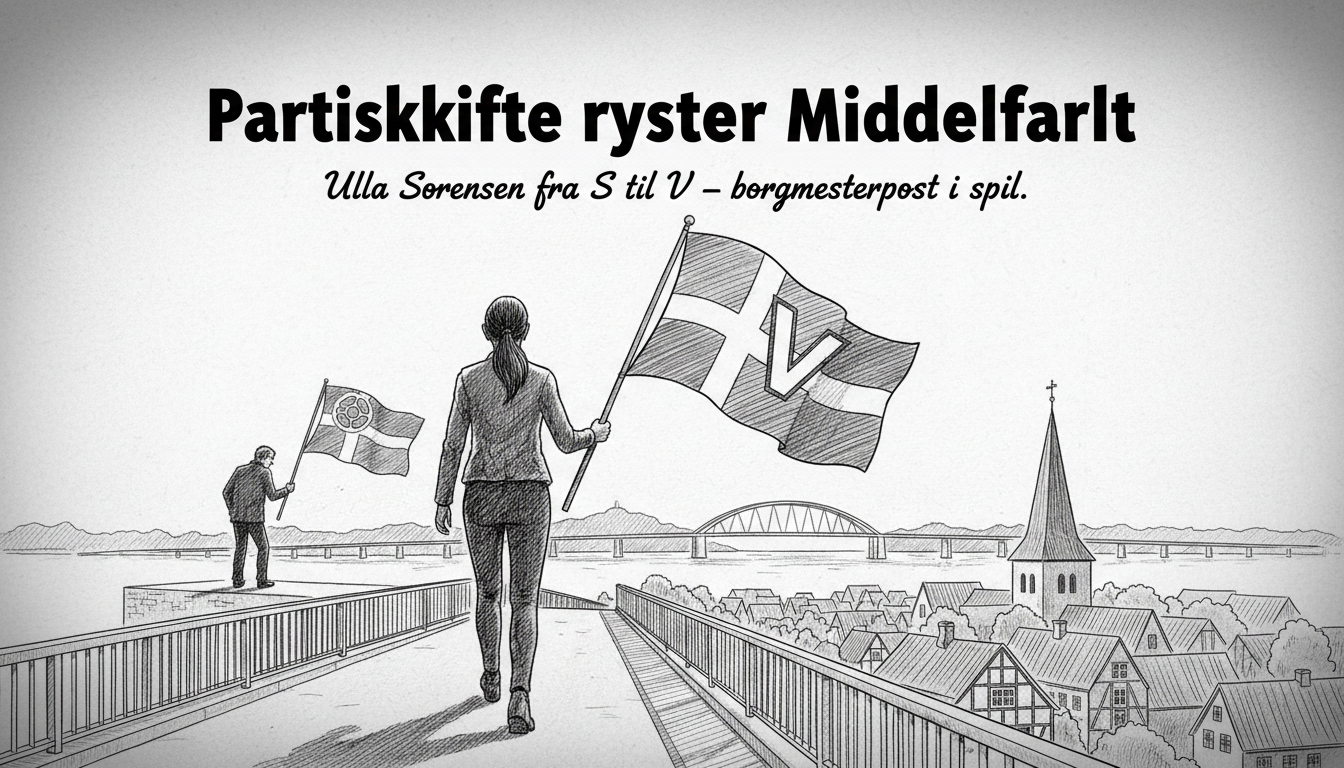A political shakeup is unfolding in the Danish municipality of Middelfart. Local politician Ulla Sørensen announced her departure from the Social Democrats to join the Venstre party. This move comes just after municipal elections that initially appeared to secure the current mayor's position.
Johannes Lundsfryd from the Social Democrats may not continue as Middelfart's mayor despite recent election results. The political landscape shifted dramatically when Sørensen changed parties. Venstre's lead candidate in the municipality confirmed they now support Sørensen for the mayoral position.
Anders Møllegaard, Venstre's top candidate, stated the party has agreed to back Sørensen instead of their original candidate. He explained this decision reflects their commitment to broader political cooperation. The party sees this move as strengthening their position in local government.
Sørensen defended her sudden party switch against claims of betraying voters. She asserted the change aligns with her commitment to wide-ranging political collaboration. The politician maintains this move serves the community's best interests rather than personal ambition.
Recent election results showed the Social Democrats, Danish People's Party, and Socialist People's Party holding 13 of the municipality's 25 seats. These parties had formed a preliminary governing agreement before Sørensen's party change. That agreement now requires renegotiation.
This political drama echoes similar events in Danish local politics. In 2013, Nyborg municipality experienced an almost identical scenario. A Social Democrat mayor appeared secure until a party member switched to Venstre, resulting in a different candidate becoming mayor.
Danish municipal politics often feature such strategic moves after elections. The country's proportional representation system creates opportunities for last-minute coalition changes. These shifts can dramatically alter anticipated election outcomes.
Middelfart residents now face uncertainty about their local government's direction. The municipality, located on the island of Funen, has approximately 39,000 inhabitants. Local services and policies could see changes depending on the final coalition formation.
Political analysts note such party switches raise questions about voter representation. When politicians change parties immediately after elections, it challenges the democratic process. Voters elect candidates based partly on their party affiliations and platforms.
The situation demonstrates the fluid nature of Danish coalition politics. Small municipalities often see intense negotiations following close election results. Every seat becomes crucial when forming working majorities.
What happens next in Middelfart depends on renewed negotiations between parties. The Social Democrats must decide whether to attempt maintaining their coalition or explore new partnerships. Other parties might see opportunities in the changed political landscape.
This development highlights how local politics can sometimes mirror national political dynamics. Party loyalty versus personal ambition creates ongoing tensions in democratic systems worldwide. The outcome will reveal much about Danish political culture at the local level.

